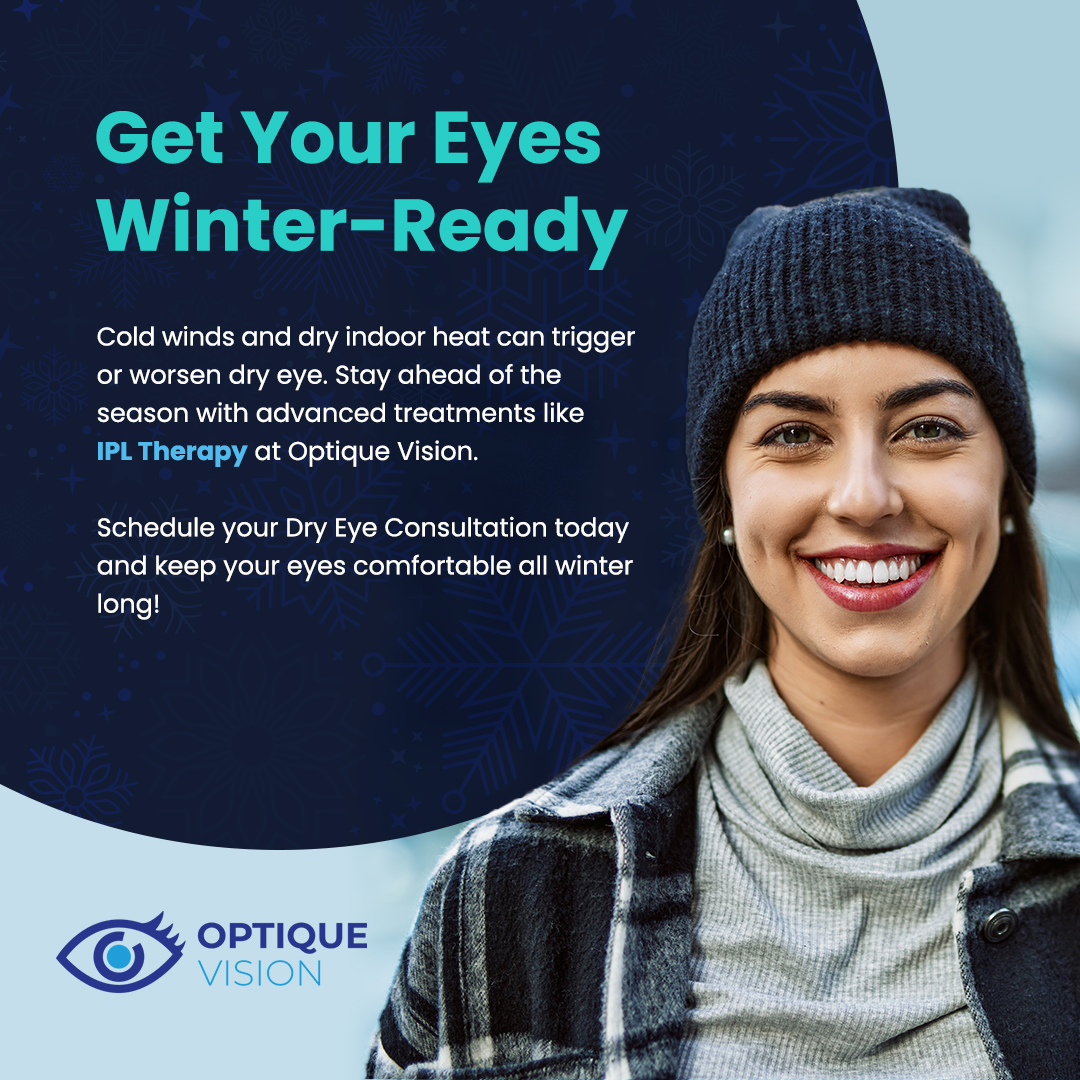
Dry eyes are a very common problem — millions of Americans suffer from dry eye disease (DED). Doctors estimate that many people go undiagnosed and suffer in silence. Many of these are older Americans, but DED can affect people of any age. Symptoms of DED range from irritating to debilitating, and many people seek over-the-counter treatment. Some do not think their doctors can treat the symptoms. Other patients, unfortunately, find their doctors may even minimize their symptoms. Patients should not resign themselves to dealing with the pain and frustration of dry eyes. There are many ways people can prevent and treat their dry eyes and improve their quality of life.
Two Types of Dry Eye Disease
The most common dry eye disease is evaporative DED. Environmental factors such as windiness, low humidity, and even smoking cause evaporative DED for many. Medical factors can also cause evaporative DED. These factors reduce meibomian gland secretion. Aqueous deficient dry eye (ADDE) is far less common. Patients can have aqueous deficient DED in combination with evaporative DED. These people do not produce enough aqueous solutions. They may or may not produce enough oil from meibomian glands.
An Ounce of Prevention
People can make many simple changes to reduce dry eye symptoms. They can avoid having dry air blow into their eyes. If humidity is very low, using a humidifier in the home can be helpful. Doctors think that daily habits are also a cause of DED and suggest reducing screen time and eye strain. People suffering from dry eyes who do a lot of work on a computer can reduce symptoms by taking more frequent breaks and by positioning the computer lower than their line of sight. If they smoke, reducing smoking or quitting altogether can improve dry eye symptoms.
When Changing Habits Isn’t Enough
Even when people do everything right, they can still suffer from dry eyes. There are some factors that a person cannot control, such as age, a history of eye surgery, or hormonal changes. Some people find their dry eye symptoms get worse due to contact use. When changes in lifestyle and personal habits aren’t enough, doctors may introduce in-office therapies for more long-lasting relief. After a doctor tests to find out what is causing DED, he or she can recommend certain treatments. These treatments range from over-the-counter options to prescription medications and in-office procedures. Some of these more intensive options include:
Specialized contact lenses.
Tear stimulating drugs.
Heat therapy for blocked meibomian glands.
Light therapy.
Don’t Underestimate Dry Eyes
Even mild symptoms can cause damage to the eyes in the long run. Serious symptoms can diminish your quality of life. Your doctor can work with you to develop a treatment plan that fits your needs and will give you relief. Optique Vision doctors specialize in dry eye treatments and will take your symptoms seriously. Schedule an appointment at Optique Vision in Albany, New York, today by calling at (518) 302-2106 to take the first step toward relief from dry eyes.









